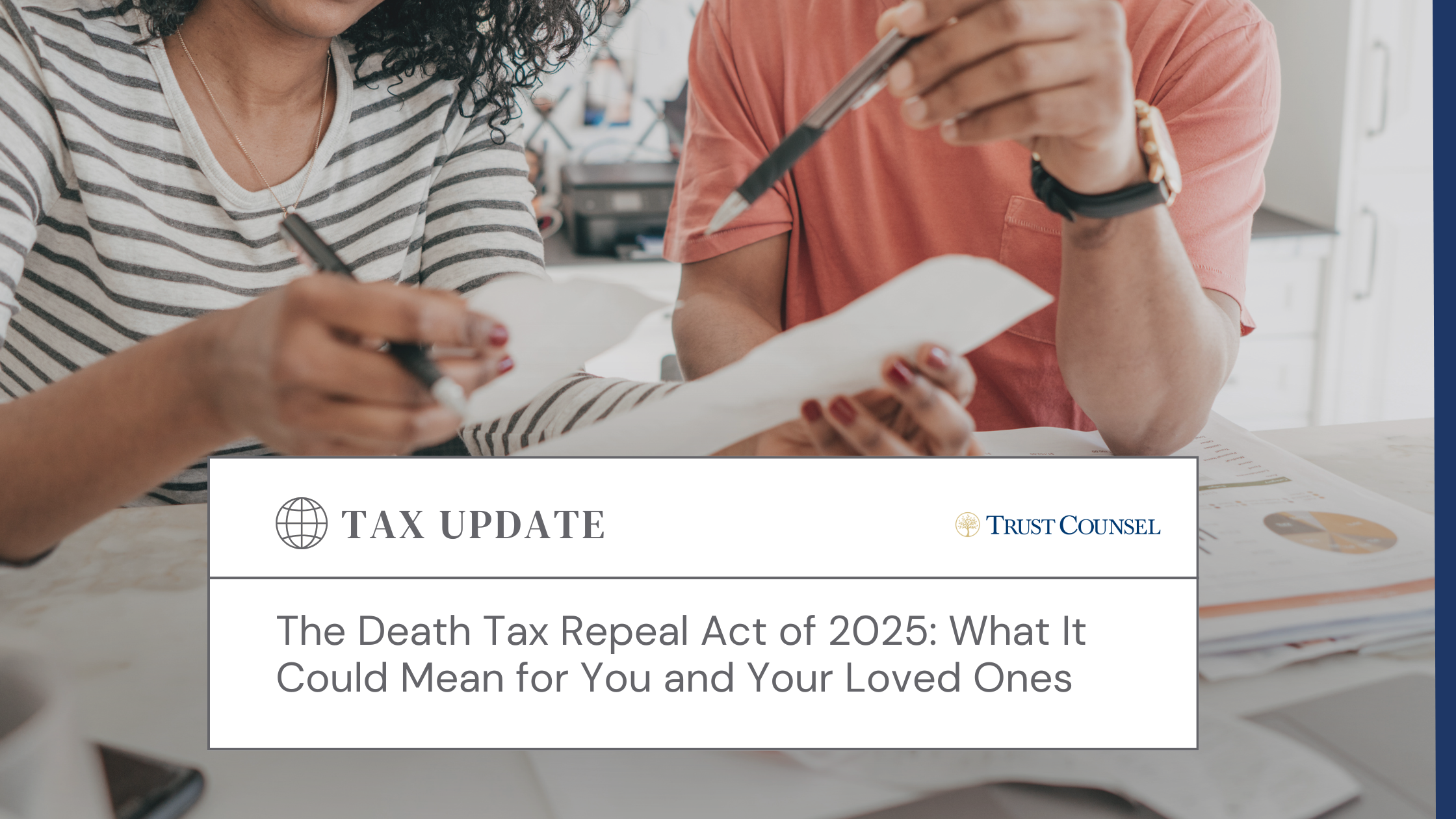Perhaps no life event imposes a more significant – and urgent – need to update an estate plan than a divorce. A divorce generally causes a radical change in both personal finances and family dynamics; in nearly all cases, both the husband and wife no longer want the ex-spouse to be a beneficiary of his or her estate plan. If children are involved, the need to protect and provide for them following a divorce is of paramount importance.
Many people incorrectly believe that a divorce automatically cancels out the estate plans that were in place prior to the divorce. It does not.
Here are the top three action items you should immediately consider regarding your estate plan:
1) Revoke your Will and make a new one.
Start by revoking your old Will and making a new one. If you don’t already have a Will, now’s the time to design one! The same is true if you made a living trust while you were married.
A Will is where you:
- Leave your property to the people you love,
- Name an executor to wrap up your estate when the time comes,
- Nominate a guardian to take care of young children if it’s ever necessary.
All of these choices are affected by divorce.
If you’re like most people, if you made a Will while you were married, you left everything to your spouse—probably not the result you want now. It’s best to start fresh with a new Will, naming new beneficiaries and alternate beneficiaries, who would inherit if your first choice didn’t outlive you. Also, be cautious of leaving anything directly to minor children as they do not have the legal capacity to own and manage assets.
Also, if you don’t want your ex-spouse to inherit your property, you probably don’t want him or her in charge of your estate, either. But if you named your spouse as your executor, it could happen unless you make a new Will.
2) Name a guardian for your minor children.
If you are a parent with young children, then your estate plan should begin with a foundation that ensures your children would always be taken care of by the people you want, in the way you want, no matter what happens. Having the necessary documents in place for the day you can no longer be there for your family is certainly important for everyone. However for families with minor children, it is a necessity. Think about it: if the unthinkable were to happen to you, who has the authority to take care of your children in an emergency situation? Or for the long term? Who can make medical decisions for them if you cannot? The last thing any parent wants is for their children to end up with Child Protective Services while an emergency situation is sorted out. In these situations, a little bit of planning will go a long way to protect your family.
3) Update Beneficiary Designations.
As important as your Will or Trust is, it might not cover some of your most valuable assets. Many assets pass outside of a Will to beneficiaries named on paperwork provided by a bank or insurance company. A plan administrator will turn funds over to the beneficiary named in the plan documents. So if your former spouse is still the named beneficiary, he or she can inherit your money!
Going through a divorce is a major life event that can leave you feeling battered and bruised. Understandably, the last thing on your mind during this difficult time is likely to be your estate plan. Yet this is time when you absolutely need to update (or create) one. Speaking to an estate planning attorney is not hard or complicated, and could well be the best thing you do for your family.





